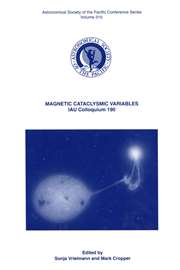No CrossRef data available.
Article contents
Pollution and Pollution Control in the Third World
Published online by Cambridge University Press: 12 April 2016
Abstract
In developing countries in Latin America, Asia, and Africa, light pollution takes a particular aspect due to the social and economical situation. The official reluctance to solve unpopular problems combined with a generalized ignorance create a hostile climate for any campaign in favor of astronomical observatories or amateur associations. The tropical climate makes most energy savings measures unnecessary. Obsolete industrial installations make the application of particle output control difficult or impossible. The most important contribution to air pollution, however, comes from forest fires, some of them as a cheap clearing method, others as an expressions of political discontent. To this must be added that most countries do not have yet a legislature which would permit the imposition of pollution control.
- Type
- Light Pollution
- Information
- Copyright
- Copyright © Astronomical Society of the Pacific 1991




